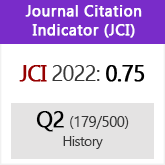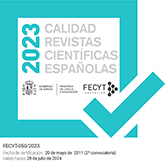Los apoyos sociales de los movimientos y regímenes fascistas en la Europa de entreguerras: 75 años de debate científico
DOI:
https://doi.org/10.3989/hispania.2001.v61.i207.306Keywords:
Fascism, Authoritarianism, Sociological Analysis, Historiography, XXth CenturyAbstract
The object of this essay is to underline the essential elements of the peculiar process of construction and deconstruction in the “classic” interpretations of the social basis of fascism established in the four decades after the First World War. We describe how at the end of the sixties the three main interpretations of fascism (regarding its liberal origins, its radical democratic origins, Marxist interpretations respectively) experienced an epistemological crisis that led from theory to the historicising of fascism. In recent years, historians have begun an extensive revision of their views on the nature of the social basis of fascist and authoritarian movements and regimes during the inter-war period. This critical approach has not yet consolidated an alternative paradigm or interpretation but has created a new variety of themes, problems and debates, forming the present state of our knowledge on fascism in the beginning of the twenty-first century.
Downloads
Download data is not yet available.
Downloads
Published
2001-04-30
How to Cite
González Calleja, E. (2001). Los apoyos sociales de los movimientos y regímenes fascistas en la Europa de entreguerras: 75 años de debate científico. Hispania, 61(207), 17–68. https://doi.org/10.3989/hispania.2001.v61.i207.306
Issue
Section
Monographies
License
Copyright (c) 2001 Consejo Superior de Investigaciones Científicas (CSIC)

This work is licensed under a Creative Commons Attribution 4.0 International License.
© CSIC. Manuscripts published in both the printed and online versions of this Journal are the property of Consejo Superior de Investigaciones Científicas, and quoting this source is a requirement for any partial or full reproduction.All contents of this electronic edition, except where otherwise noted, are distributed under a “Creative Commons Attribution 4.0 International” (CC BY 4.0) License. You may read here the basic information and the legal text of the license. The indication of the CC BY 4.0 License must be expressly stated in this way when necessary.
Self-archiving in repositories, personal webpages or similar, of any version other than the published by the Editor, is not allowed.














